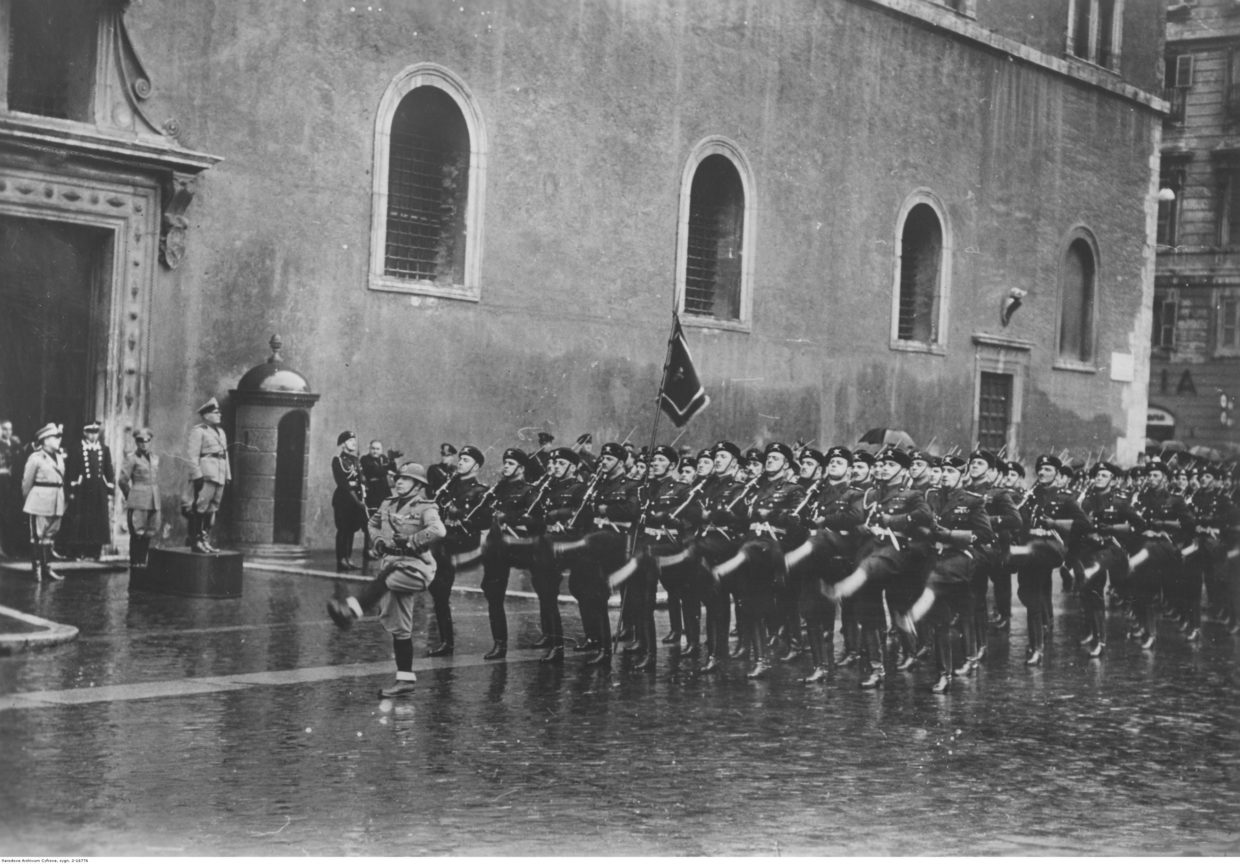'Twilight Of Democracy: The Seductive Lure Of Authoritarianism' Book; Trump In Context, More
- 'Combining Indictment With Insight, A Historian Offers Context For The Age Of Trump,' *July 22, 2020, NPR. - Excerpts, Ed. -
This week, two more books appeared on the ever-widening shelf of literature lambasting President Trump and his presidency. One sold nearly 1 million copies on its first day, based on the name of the author and weeks of publicity. But the other is the better book to buy for insight into what Trump's rise and rule really mean — here and abroad — for democracy in our time. The first, of course, was Too Much and Never Enough: How My Family Created the World's Most Dangerous Man. In its rueful pages, Mary Trump, the president's niece, wields both her training as a psychologist and her insider knowledge of Uncle Donald's dealings with other family members.

The second, by historian and journalist Anne Applebaum, is Twilight of Democracy: The Seductive Lure of Authoritarianism — and it too depicts Trump as a threat on a global scale.. To be sure, Applebaum sees the U.S. president as akin to an array of autocrats now in power around the world, from Russia's Vladimir Putin to Hungary's Viktor Orban to Rodrigo Duterte in the Philippines. She does not cast Trump as the cause of the world's current passion for autocracy, although he is arguably its gaudiest product. Applebaum brings to these judgments the gravitas of a historian, winner of the Pulitzer Prize for Gulag: A History, one of three volumes on the tyranny of the Soviet Union. Her greater subject is the fragile state of classic liberal democracy.
She fears that the rule of law, the rights of the individual and the combination of free elections with the regulating institutions of a republic may not survive the onslaught of the 21st century.
Still heir to ancient fears and hatreds, even the most advanced societies are straining under repeated blows: protracted wars, economic disruptions, migrating populations, and now a global pandemic.
These challenges are complicated by the power and pace of technological change, especially the bewildering landscape of social media and other Internet-based communications that can "undermine consensus, divide people further and increase polarization until only violence can determine who rules." One reason may be the personal focus of this work, the sense that she is lamenting the loss of friends and views she felt sure of when the century began..
There is no simple response, but to the biggest question she replies: "Given the right conditions, any society can turn against democracy. Indeed, if history is anything to go by, all societies eventually will."
Indeed, changing conditions have dimmed what had seemed the dawning of a new international epoch in the late 20th century. In those years, the Soviet Union was collapsing, apartheid was abolished, military juntas were being displaced in South America and even China seemed to be moving toward free markets and perhaps even a kind of democracy...
More, https://www.npr.org/2020/07/22/892171996/combining-indictment-with-insight-a-historian-offers-context-for-the-age-of-trum
____________________
- The Twilight of Democracy and the Rise of Authoritarianism, Anne Applebaum and Michael Ignatieff In Conversation with Andrew Keen, Lihub, Sept. 4, 2020,
https://lithub.com/the-twilight-of-democracy-and-the-rise-of-authoritarianism
.. Michael, you’ve written a lot about the history of nationalism and the crisis of democracy. You’re living it now. You just moved from Budapest to Vienna, because your university was essentially thrown out of Budapest by one of the new authoritarians. Do you agree with Anne that this crisis is universal, that it extends beyond Central Europe, beyond Poland and Hungary, and is actually a challenge, this seductive allure of authoritarianism? It’s as relevant in the United States or the United Kingdom as it is in Central Europe?
Michael Ignatieff: Well, I’ve learned a tremendous amount from Anne’s analysis because it’s so based in her deep knowledge, particularly of Poland but also of Hungary. And I am one of those who like the idea that what’s been happening in Poland and Hungary should give pause to anybody in supposedly stable Western European or North American liberal democracies, because there’s a kind of condescending tendency to say, oh, in Eastern Europe, they just don’t have the experience with democracy that other societies do. So I like the general drift of the argument that the authoritarian turn in Poland and Hungary should be of great concern in the West. But I do think there are very substantial institutional differences...
What is amazing to me is the ways in which a certain kind of constitutional conservative doesn’t actually get that Kaczynski & Orban are not conservatives in that sense at all. They’re not constitutional conservatives. They’re anti-constitutional conservatives. They are profoundly dangerous to everything a constitutional conservative believes in...
____________________
- Don't trust Germany to stay democratic if economy takes a downturn, warns Nazi governor's son. 'There's still something in the German people which makes me fear them.' The Independent, April 26, 2017.
The son of a Nazi governor has spoken of his fears over the possible break-up of the European Union and warned that Germany could return to authoritarianism if its economy hit the skids. Niklas Frank, whose father was Hans Frank, the governor of Nazi-occupied Poland during the Second World War, pointed to the recent hardening in attitudes toward refugees in Germany when he warned: “Don’t trust us”.
“As long as our economy is great and we make money, everything is very democratic, but if we have five to ten years of heavy economic problems, the swamp is a lake, and is a sea, and will swallow again, everything,” he said. Mr Frank, who was just seven years old when his father was hanged for war crimes, said the European Union made him feel personally secure and had helped keep the peace following hundreds of years of war on the continent...
https://www.independent.co.uk/news/world/germany-democratic-nazi-governor-hans-frank-son-niklas-economy-downturn-second-world-war-poland-fascism-a7703491.html
